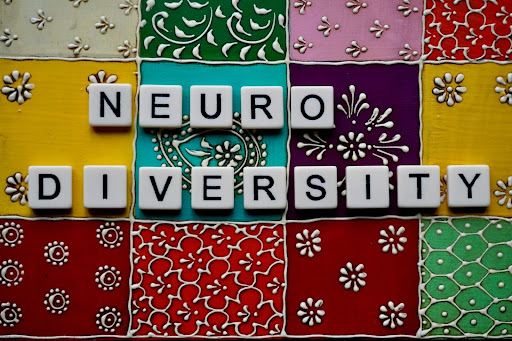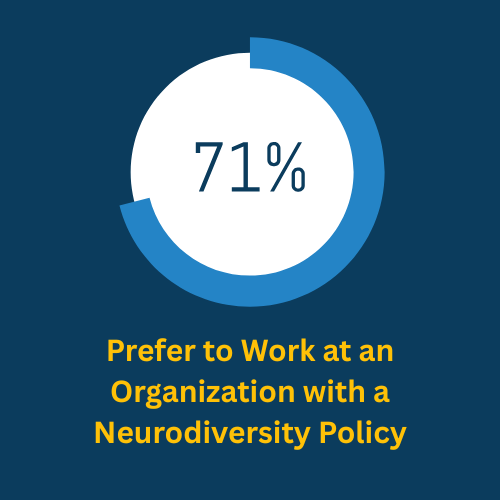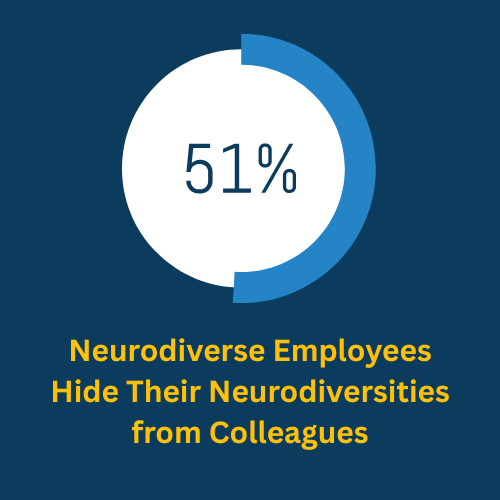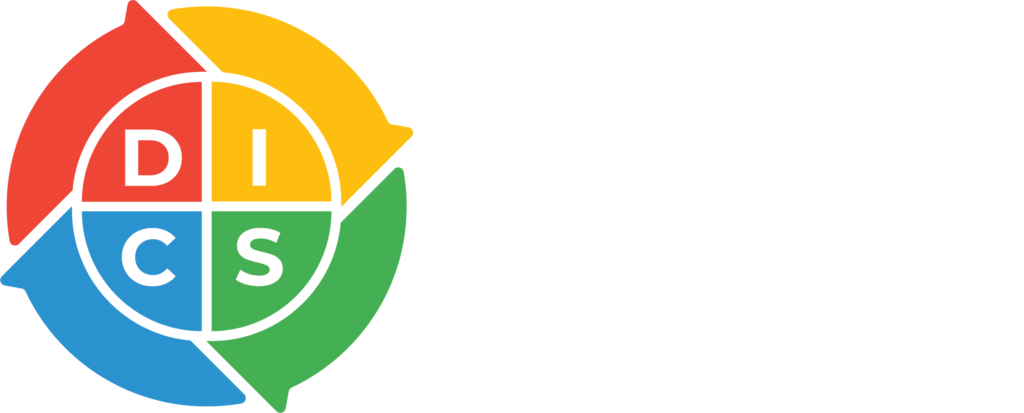Neurodiversity in the workplace – can we Do better?
Adam Stamm
Managing Partner: Online DISC Profile
Almost a fifth (19%) of Americans identify as neurodiverse, including ADHD, autism, and dyslexia, among others.
While the world has become better adapted to help those with neurodiversities, many people are still struggling to feel accepted in the workplace.
Recently, we conducted a global survey that shows many people are hiding their personalities and neurodiversities from their employers and colleagues.
We’ve invited industrial/organizational psychologist Jeannie Bril, who specializes in team development, Melissa Walker, author of Beyond Diversity: Embracing Neurodiversity for Organizational Success, and Brian Miller, a Training Support Administrator who has written about how DISC helped him appreciate his neurodiversity, to share their thoughts and guidance on neurodiversity in the workplace.

What employees think about hiding their personality in the workplace
We asked 3,276 people worldwide how likely they are to hide their true personality at work. Within that, 589 respondents identified as neurodiverse and answered specific questions about their workplace experiences with neurodiversity.
One crucial finding is that over half (55%) of all surveyed are likely, somewhat likely, or very likely to hide personality traits from their colleagues, something that Jeannie notes is related to “masking” or “camouflaging”:

Jeannie Bril Organizational Psychologist
“Psychologically, this occurs because employees perceive that their authentic traits may not be accepted or valued in traditional workplace environments.
“One of these contributing factors is psychological safety, defined as the belief that people can express themselves without fear or negative consequences. If a person is experiencing reduced psychological safety, they are likely to hide who they are.”
All respondents of the survey
In addition to hiding true personalities from colleagues, the survey respondents are also inclined to hide them from their manager, with over half (54%) likely, somewhat likely, or very likely to do so, regardless of whether they identified as neurodiverse or not.

There is also a preference among everyone surveyed to work for a business that has a clear neurodiversity policy in place and is upfront about it.
Overwhelmingly, 71% of respondents would opt to work for a business with a clear neurodiversity policy.
Those who identify as neurodiverse
When someone identifies as neurodiverse, the need to hide can sometimes feel greater, as they often can face prejudice, discrimination, and possibly bullying.
The results show that over half (52%) of those surveyed would hide their neurodiversities from colleagues, and a further 54% would also hide this from their managers.
This also applies when people are applying for or interviewing for jobs, with 52% unlikely to disclose ADHD, autism, or any other neurodiversity they might have at this stage.

However, Brian says that sharing your true personality is important for psychological safety:
“I believe it’s important for neurodiverse people to be transparent about their neurodiversity (if they feel safe to do so) because it allows them to simply be themselves within a space. This psychological safety is extremely important, especially to ND [neurodiverse] folks. If we feel comfortable enough to let our mask down, that’s when we can really shine and do our best work.”
Transparency about neurodiversity policies in place at businesses can be very beneficial, and an overwhelming 80% of respondents would opt to work at a company with an inclusive policy over one without.
Should employees Hide their neurodiversity?
While the majority of people are choosing to hide their personality, and specifically their neurodiversity, from their colleagues and manager, it would also appear that they are considering sharing, with common questions found from AlsoAsked data, including:
- Should I tell my boss I have ADHD?
- How to tell your boss you’re neurodivergent?
- Do I have to tell my boss I’m autistic?
- Is neurodiversity a protected class?
- How to explain autistic burnout to my boss?
- Can you be fired for being neurodivergent?
Being open and honest about your true self can have a greater impact on your whole life, including how you show up at work.
This should only be done if you feel safe to do so, and you work somewhere that feels inclusive and accommodating. Your employer is responsible for ensuring their work environment is a safe space where people feel they can open up.
It can also be quite psychologically harmful to hide who you really are, especially if you have any neurodiversities.
The potential for psychological damage
Jeannie notes that there is clear evidence that hiding who you really are can cause significant psychological harm, with four main consequences:
Chronic stress and emotional exhaustion
If people find themselves constantly self-monitoring their behavior to “mask” who they really are, this can be very draining, leading to high stress and emotional fatigue – often spilling over into non-work life.
It has also been found that camouflaging in autistic adults is strongly associated with exhaustion and reduced well-being.
Anxiety and depression
When suppressing natural behaviors and traits, this reinforces a sense of feeling “deficient” or “unacceptable”.
Research notes that this has links to higher rates of social anxiety, depression, and low self-esteem.
And over time, there can be a disconnect between your inner self and outward expression, leading to a deep sense of alienation.
Burnout and identity erosion
When authenticity is suppressed too often, people may experience “identity strain”, which is the psychological toll of living in conflict with who they really are.
For people who are neurodivergent, prolonged masking can lead to questions about who they are.
Risks of suicide
There is also research that shows that those who camouflage, particularly those who are autistic, are at a higher risk of suicide.
When and how to disclose your neurodiversity
The first thing to note when it comes to disclosing your neurodiversity at work is that you must feel safe and comfortable to do so, and not just within yourself, but with your colleagues and manager.
Once this is the case, for telling managers specifically, Brian recommends firstly thinking about what you want to say and why.

Brian Miller
Training Support Administrator
“Is there an issue at work, or do you want to proactively let them know? This can help you plan the conversation without sharing more than you’re comfortable with. People with ADHD may share too much, and people with autism may become overwhelmed during the conversation and shut down. So planning is important.
“Second, I would ask your manager to schedule some one-on-one time with you. This will ensure you’ll have a private space and won’t be disturbed by anyone else.
“Finally, during the conversation, be clear about why you are sharing and what you hope to accomplish. If you need a sensory safe space, ask for one. If you need breaks throughout the day to walk and burn off energy, ask for it.”
Approaching your colleagues requires a similar amount of safety and comfort, and most importantly, trust.
Brian, who has ADHD himself, recommends setting boundaries and planning out the conversation in advance: “Depending on the neurodiversity, oversharing can be an issue. I know that for myself, if I don’t plan out a conversation, I’ll end up sharing way more than I intended, which can lead to awkwardness.”
Speaking to colleagues in a private space is also recommended, and in a one-on-one setting. This way, you can judge their reactions without anyone else interrupting. It can also help prevent some people with autism from becoming overwhelmed.
How can managers accommodate neurodiversity in the workplace?
For Brian, this starts at the interview stage.
He says: “As a former hiring manager myself, and someone with a neurodiversity, I would tell potential applicants during the interview that I have a neurodiversity. I would also share our accommodation policy.”
“I found that if they also had one, it would allow them to feel comfortable opening up and sharing. If a manager isn’t neurotypical, they could review the accommodation policies instead to ease the applicant.“
Once an employee is hired, managers can tailor onboarding to them personally, as many people with neurodiversities don’t learn the same way as others.
Tips for onboarding neurodiverse employees
- Those with ADHD may prefer video content or group projects
- Autistic people may prefer written guidelines
- People may want a quiet space to read and/or watch the onboarding material
- People may also want the chance to ask follow-up questions in a 1:1 setting
Tips for working with neurodiverse employees
- Don’t call attention to the person’s neurodiversity unwarrantedly, especially in a public setting
- When working with a neurodiverse person, ask them how you can best work with them
- Be honest with neurodiverse employees (this should go for any employee, too!)
- Offer different communication options, such as email, live meetings, or calls
- Provide flexible work hours, breaks, and an environment such as quiet spaces, working from home, or noise-canceling headphones
Jeannie notes that normalizing neurodiversity can also go a long way to make employees feel more comfortable:
“Managers can highlight examples of diverse thinking and frame it as a strength, which can lead to innovation or problem-solving within a team.”
Melissa Walker
Leadership teams can also take the time to learn about neurodiversities and encourage the wider team to do the same.
Melissa also shares the importance of being transparent: “It is best to set clear expectations, direct feedback, and structured agendas. Managers should avoid relying on unwritten office norms, social cues, or ‘reading between the lines.’”
Not only should the working day be accommodating for those with neurodiversities, but there can also be additional groups. Melissa says: “Businesses can create employee resource groups (ERGs) or safe spaces for neurodivergent employees and allies.”
Use DISC to support your neurodiversity in the workplace
Using DISC can be a helpful tool for both employees and managers to understand personality traits better and ultimately foster a better workplace environment.
For those who identify as neurodivergent, using DISC can help them develop a greater sense of self-awareness and a better understanding of their internal motivations and stressors.
A person with neurodiversity may come to understand that something they thought was a result of their neurodiversity is actually just a normal behavioral response to a specific environment. This could be really self-affirming and help those struggling with the label feel more connected.
Managers can use DISC in the same way – to better understand the behaviors of someone on their team.
It’s also crucial for managers to consider how they make decisions and interact with others, taking time to reflect when these interactions go wrong.
DISC assessments and training can be done at any workplace, and we offer a free DISC leadership assessment for managers wanting to learn how understanding their employees’ traits will help them make their neurodiverse employees feel safe and accommodated.
Note: If you’re affected by any of the issues raised in this article, you can find support at the following places:
- Call or text 988 or chat at 988lifeline.org
- Reach the Crisis Text Line by texting HOME to 741741 or chat at crisistextline.org
About Jeannie Bril
Jeannie Bril is an industrial/organizational psychologist, facilitator, and coach who specializes in personality assessments and team development–bringing decades of experience in leadership training, talent management, employee engagement research, and learning & development.
About Brian Miller
Brian’s career began more than twenty years ago in the furniture retail industry. Brian held positions as a Sales Manager, a General Manager, and a Market Manager.
Brian’s energy, positivity, and experience help create fun, immersive training experiences. He is passionate about helping people reach their fullest potential, regardless of their position.
About Melissa Walker
Melissa Walker, Ph.D., serves as the Statewide Director of Workforce Solutions for the State of Colorado. In this capacity, she directs organizational development and workforce strategy across state agencies. With more than two decades of expertise in strategic workforce initiatives, Dr. Walker excels in developing inclusive cultures and pioneering innovative solutions for a variety of dynamic organizations.
Dr. Walker identifies as autistic, a facet of her identity that informs her deep commitment to neurodiversity and inclusion in the professional landscape.
She has also written Beyond Diversity: Embracing Neurodiversity for Organizational Success.
